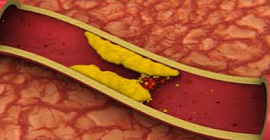
Preliminary study results suggest that a biomarker may be associated with the ability of young and middle-aged people to fight off a cold caused by a particular rhinovirus. The biological marker identified in the study was the length of telomeres—cap-like protein complexes at the ends of chromosomes—which shorten with age. Having shorter telomeres is known to be associated with the onset of aging-related diseases such as cardiovascular disease and cancer, and with mortality in older adults. The study was published in the Journal of the American Medical Association. Funded in part by NCCAM, the study is the first demonstration that telomere length influences susceptibility to an acute infection.
Researchers from Carnegie Mellon University, University of Virginia Health Sciences Center, Children’s Hospital of Pittsburgh, and the University of California at San Francisco measured the telomere length of white blood cells from 152 healthy volunteers aged 18 to 55 years. These individuals were then exposed to a rhinovirus, which causes a common cold, and quarantined for 5 days to see if they actually developed an infection.
The researchers found that participants with shorter telomeres were more likely to become infected by the virus. As participant age increased, telomere length became an even stronger predictor. Additionally, telomere length of a specific type of white blood cell (a CD8CD28- T-cytolytic cell) was a superior predictor of infection and cold symptoms than other white blood cell types. The telomeres found in CD8CD28- cells shorten more quickly than those found in other cell types, and previous research has found shorter telomere length in these cells to be associated with decreases in markers of immune competence.
The researchers noted that because these data are preliminary, their clinical implications are not yet known.
Reference
Get The Latest By Email
- Cohen S, Janicki-Deverts D, Turner RB, et al. Association between telomere length and experimentally induced upper respiratory viral infection in healthy adults. JAMA. 2013;309(7):699–705.










